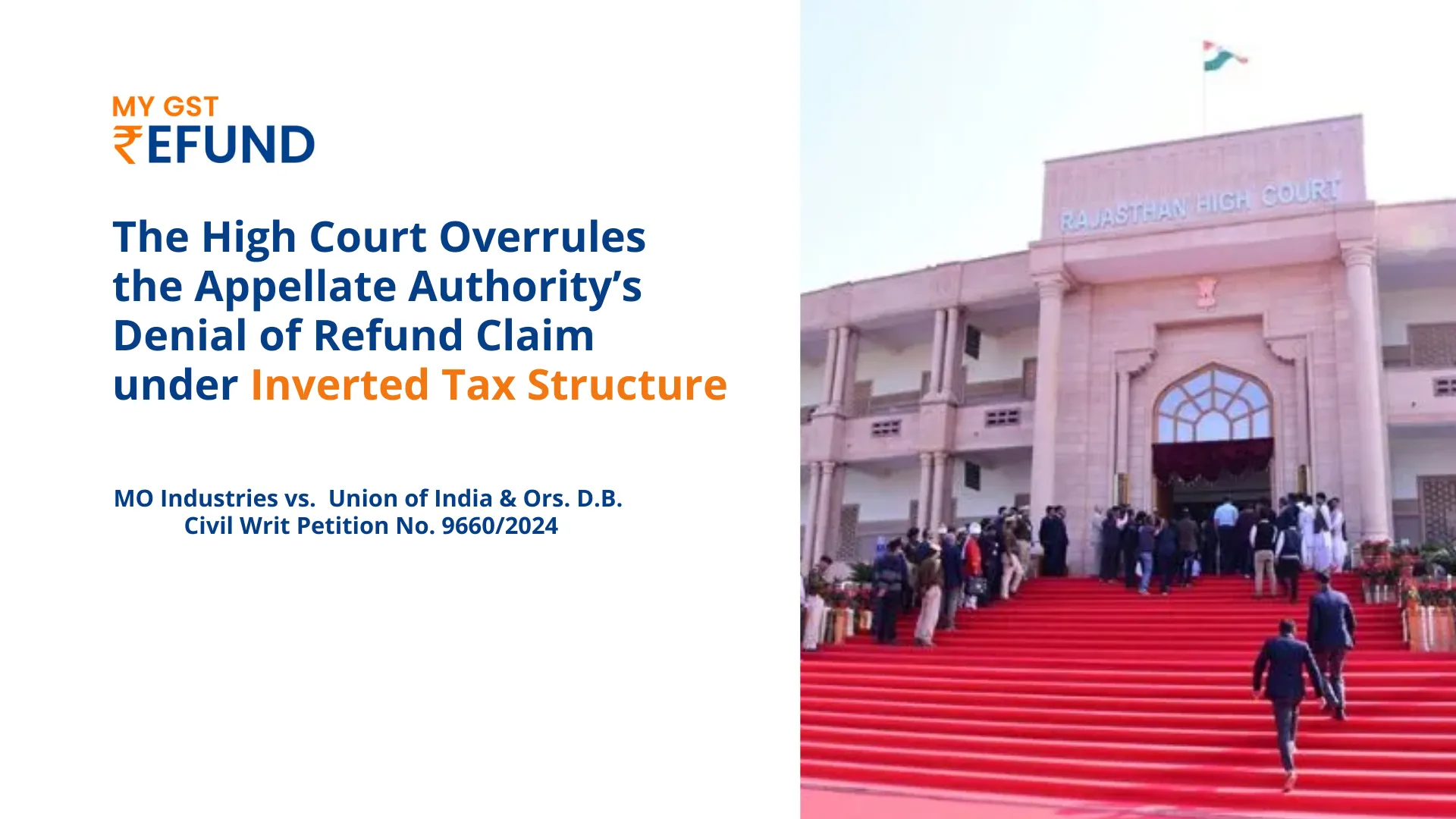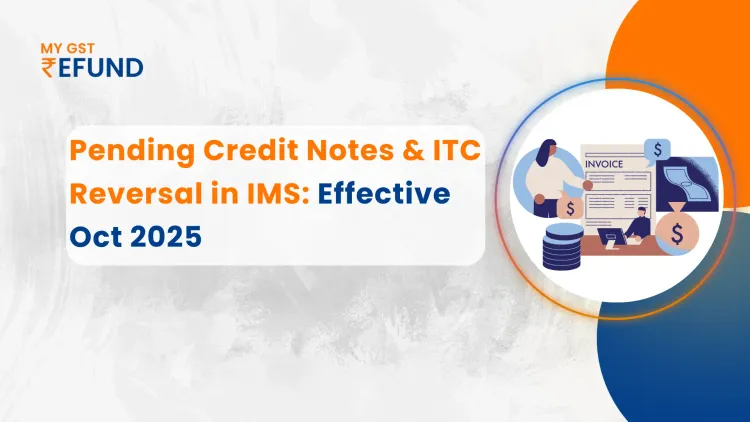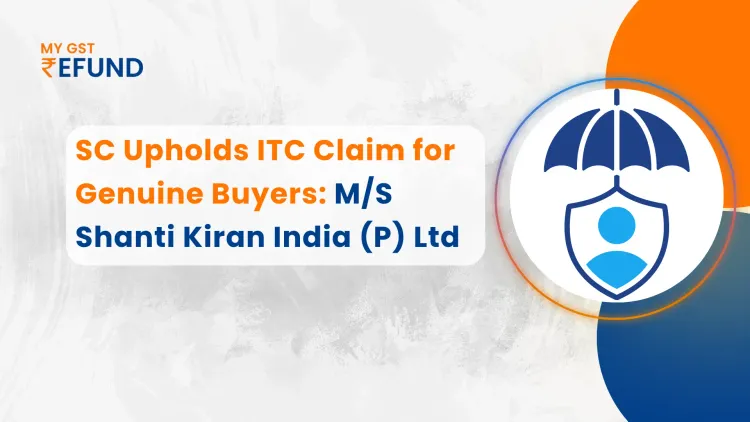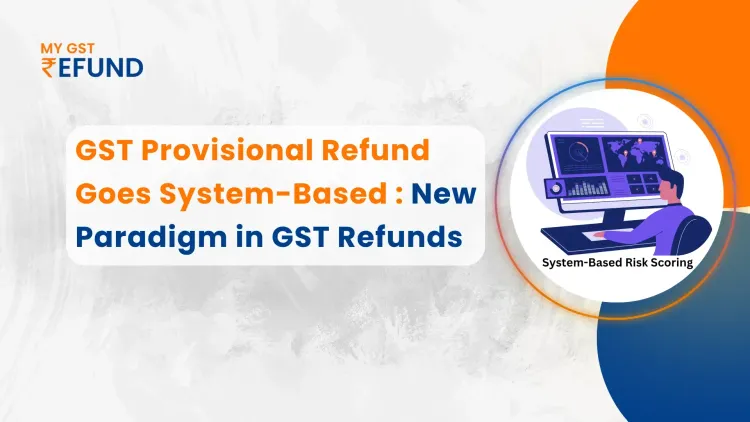High Court Overrules Appellate Authority’s Denial of Refund Claim
Published on: Sat Aug 17 2024
MO Industries vs. Union of India & Ors. D.B. Civil Writ Petition No. 9660/2024
The ruling made by the Rajasthan High Court is significant; it overturned the decision of the Appellate Authority, which had denied a refund claim under the 'Inverted Tax Structure' based on a circular. This case heavily depended on the authority's reliance on a circular that restricted the simplicity of refunds, which led to an appeal by the taxpayer.
Circulars cannot override statutory provisions.
The High Court stressed that circulars issued by tax authorities are supposed to provide clarification on or simplify the interpretation of the tax laws. Nevertheless, they do not possess the power to surpass the statutory provisions of the law. The Court also stated that, without looking at any other aspect, the GST appellate authority erred in solely relying upon such circulars with regard to refunds under the Goods and Services Tax regime.
Understanding the 'Inverted Tax Structure'
An 'Inverted Tax Structure' happens when the tax on raw materials is higher than on the final goods, which leads to the accumulation of input tax credit. Under GST laws, unutilized input tax credits may be refunded to businesses in such situations; however, there has been controversy over the denial of refunds based on restraining circulars.
Upholding Legislative Provisions Over Administrative Orders
This situation thus emphasizes that legislative provisions take precedence over administrative orders like circulars so that taxpayers do not suffer from unreasonable deprivation of their rights. The ruling is likely going to change how some businesses deal with these matters and might lead them to review certain rejected claims for refunds.
Circulars as Guidance, Not a Tool to Infringe Rights
Again, this ruling serves as a cautionary note that even if Queen’s webs have an important guiding role for tax-payers and authorities, they cannot be used as a tool for infringing on or attenuating what the law grants people as rights. The necessity of obeying the statutory structure remains paramount in this case and can provide clarity to players within the GST regime.
Also Read:National Plasto Moulding Vs. State of Assam & Ors. (Gauhati High Court)
Related Posts




